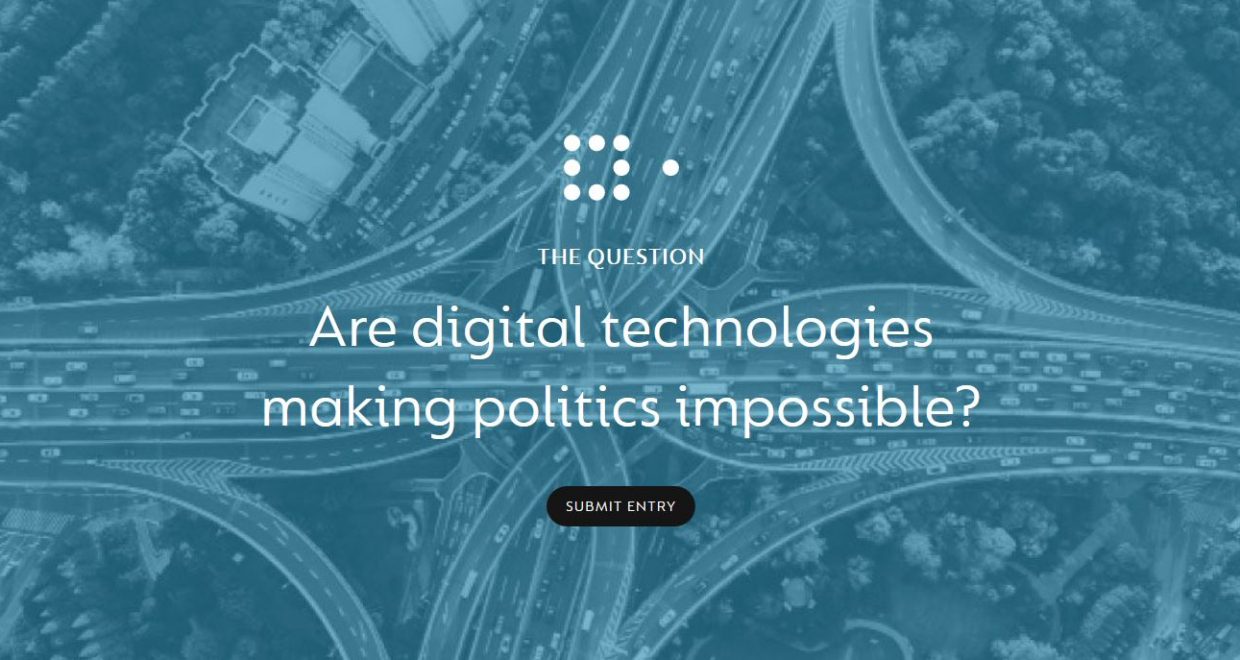The Nine Dots Prize
“It’s new, but not that new” says Professor Simon Goldhill, wrapping up his talk at CUP’s “Innovation and Insight in Publishing” session for Academic Book week. Goldhill’s remark referred to the parallel he drew between the essays of the Enlightenment, and the new Nine Dots Prize – a “back to front” book prize where entrants win not for having written a book, but in order to write a book. And not just any book –a book that the Prize Board, chaired by Professor Goldhill, hope will genuinely open new avenues of thought and public discourse, in the same way Enlightenment essays were central to 17th and 18th century thinking and society.
To find these new ideas, the Prize is offering $100000, time, support, and a book contract with CUP to the best answer to the inaugural question “Are digital technologies making politics impossible?” A timely question, but one which Professor Goldhill emphasised the Board really want the winner to have engaged with creatively; to answer with a genuinely new approach. Reader, if you have one such answer, you have just under a week to submit your entry on the Nine Dots Prize website!
Following Simon’s talk, the #AcBookWeek audience were keen to understand the mechanics of this new (or old!) approach to book publishing. How do you reach new audiences? How do you commit to publishing a book before you know who the author is? If you want creative answers, does it have to be a book?
In answer to the first question, and as Goldhill himself said, we (publishers and academics) are used to speaking to political theorists about political theory, and technologists about technology, but how to reach across them both, and further? Since its launch in October 2016, the Prize team (a combination of the Riot PR agency, the Prize Board, the Kadas Prize Foundation, and staff at CUP and CRASSH) have busily been getting the word out about the Prize and have seen coverage in national and international news outlets, various magazines, Reddit, at events, blogs, on social media, and of course via their own established channels. Goldhill also emphasized that the Nine Dots Prize will also be judged anonymously – the Board felt strongly that if the submission is truly to be judged on the quality of the ideas presented, they couldn’t know who was behind the submission.
How do CUP feel about publishing a book with an as-yet-unknown and potentially inexperienced author? Firstly, there will be support available. The Prize includes the opportunity to spend a term as a Fellow at the University of Cambridge’s Centre for Research in the Social Sciences and Humanities to allow the winner to work with and develop their ideas at one of Europe’s leading social science institutes, and CUP will guide them through a structured publishing process. Secondly, the role of the Prize Board (comprised of world leading thinkers from academia, journalism, and business, and including one of CUP’s own Academic Publishing Committee, Professor David Runciman) will review the submissions received, looking for a new Enlightenment-worthy response to carry on CUP’s long tradition of publishing ground-breaking and influential thought and research.
And finally – does it have to be a book? Well, yes. But, as we heard in both UCL Press’s earlier session on the BOOC outcome of the Academic Book of the Future project, and Nisha Doshi’s presentation of CUP’s new Elements format, that’s an increasingly fluid concept!






